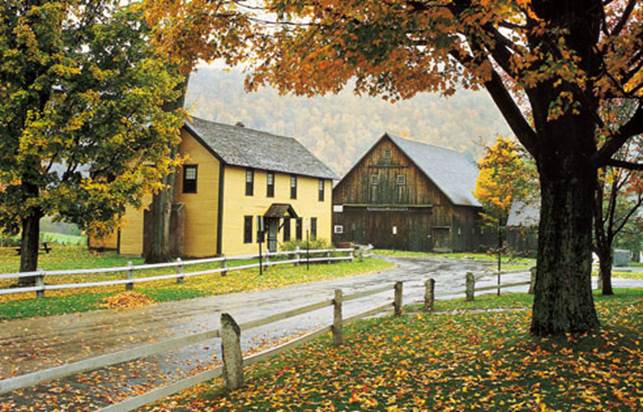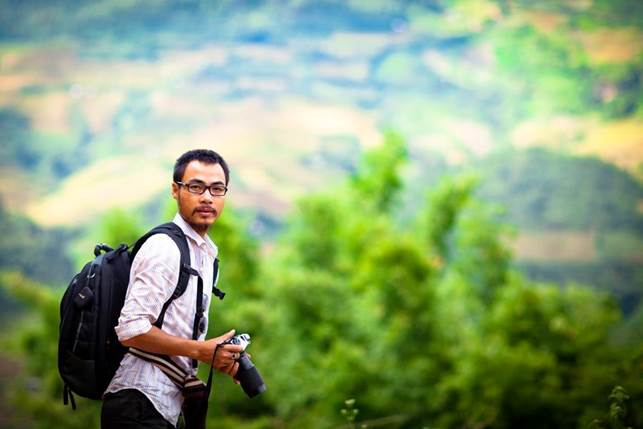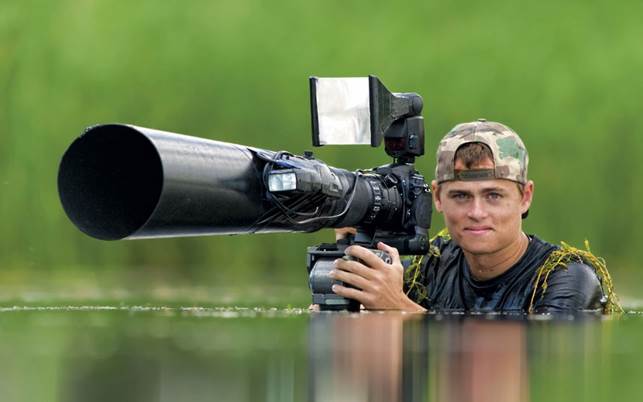If at first you don’t see, look, look again
Sometimes
pictures just don’t seem to work out and I realize photography is often a state
of mind. There have been times when I think a scene might have jumped out in front
of me, screaming, “Take my picture!” and I wouldn’t have seen it. I wondered if
that was happening to me recently when I tried to photograph some nearby
landscapes. The banks of the Potomac River, about 10 miles upstream from
Washington, D.C., were tinged with blue wildflowers—the Virginia blue- bells
were spectacular and in full bloom. In the past, I’ve photographed them along
streams in the area and have learned they can be a bit unpredictable. I once
made a very nice panorama along the edge of Goose Creek, but went back several
times in following years to find nothing. Apparently, they were washed away by floodwaters.
This year along the Potomac, I had trouble capturing their profuseness and
delicate blues. None of the pictures seemed to work out. They were every-
where, but at the same time, obscured beneath trees and underbrush, so much so
that a knot of entwined branches captured more of my attention, and I tried
concentrating on the interesting abstraction with the delicate blue flowers
subservient in the background.

The banks of the Potomac River, about
10 miles upstream from Washington, D.C., were tinged with blue wildflowers—the
Virginia blue- bells were spectacular and in full bloom
I
soon realized it was the speckles of sunlight that became a distraction and
were working against me. It wasn’t until I returned after the sun was hidden
that the scene began to welcome me. I was having better luck in completely
shaded areas. Back at that tangle of branches, I liked what I saw and worked it
into a panorama. I used my Nikkor 24mm ƒ/3.5 Perspective Control lens mounted
on my Panasonic LUMIX DMC-GH3 via an adapter ring. It gave me an effective
focal length of 56mm with the added ability to drop or raise the lens for
better compositions. It has very low distortion and is a great lens to use when
stitching pictures together.

I used my Nikkor 24mm ƒ/3.5
Perspective Control lens mounted on my Panasonic LUMIX DMC-GH3 via an adapter
ring
Nearby
on the hiking path was a small log that I walked past many times. I’m sure I
noticed it and contemplated using it in a composition. Eventually, I returned
to it and examined it more closely. I got on my knees and discovered it was hollow.
The closer I got, the more interesting it became. I liked what I was getting,
but light was fading fast, so I decided to come back the following day. Morning
broke with rain and predictions of more rain. I didn’t want to take a chance on
losing the short-lived blossoms, and perhaps the rain might bring out more of
the colors (it did). I prepared myself more carefully and took along a small
rubber mat to protect my gear and myself from the muddy ground. Fortunately,
the log was alongside a path, so I didn’t disturb any vegetation. I pay special
attention to the natural habitat and try not to leave the beaten paths, if
possible. I’m keenly aware of where I set my tripod legs so as not to crush the
delicate carpet of vegetation. A large golf umbrella propped on the log
protected me further. I shot with my GH3 and 24mm lens. The greater depth of field
with the 4/3 format worked to my benefit, and the articulating rear display
screen turned out to be another advantage. The camera lens was actually inside
the log for most of the photos and was supported by my Leica folding
mini-tripod.

The camera lens was actually inside
the log for most of the photos and was supported by my Leica folding
mini-tripod
I
lose track of time in situations like that. I must have been curled up on the
ground, practically inside the log, beneath the umbrella for an hour or two—
getting up was harder than getting down. I guess I was experiencing some kind
of “photographer’s block’’ on my first visit, but by going back and looking
harder under different light, it helped me overcome that first day with nothing
to show.